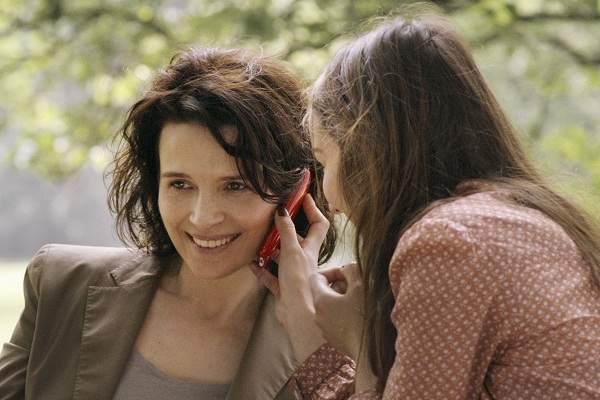Elles
Where do prostitution and bourgeois female life meet? This film explores, or tries to, in 99 minutes.
Overview
In her fourth feature film, Polish director Malgoska Szumowska attempts to interrogate our traditional sexual mores: Is prostitution only ever an act of female exploitation or can it empower women, financially and socially? Do the sacrifices and compromises involved in maintaining a "respectable" bourgeois marriage actually constitute a form of whoredom?
Of course, these uneasy questions have been asked before. On this occasion, Szumowska seeks to unpack them in the context of contemporary French society. The problem is that her exploration tends to simmer on the surface, rather than probe the depths necessary to penetrating such complicated issues.
This may well be the consequence of trying to do too much in 99 minutes. Juliette Binoche is Anne, an obsessive, middle-aged journalist, struggling to meet the demands of her job, as well as play mother to two disconnected teenage sons and wife to a dispassionate husband. When asked to research the phenomenon of prostitution among Parisian students, Anne finds herself drawn to a risky yet seductive existence, leading her to question her own.
The narrative hangs on Anne's interviews with two call girls: Charlotte (Anais Demoustier), a diminutive brunette who prefers to make quick money through the provision of sexual favours than to work long hours in a casual job, and Alicja (Joanna Kulig), a voluptuous blonde Pole who enjoys living in a spacious apartment and buying fancy clothes. Flashbacks convey their gamut of carnal experiences, which for the most part are portrayed as erotic and thrilling, the exception being a couple of incidents in which clients insist on humiliating and sadistic acts.
This potential risk of aggression and its emotional consequences is one of many issues that are touched upon, rather than thoroughly explored, in Elles. The focus is on a plethora of graphic scenes, at the price of the development of the script's philosophical and psychological complexity.
Binoche certainly delivers a powerful, poignant, and nuanced performance, even if her character's reactions are simplistic and predictable: the more time Anne spends talking with Charlotte and Alicja, the more she comes to resent the apparent mundane domesticity of her passionless marriage. Her awakening sensuality is represented by some rather obvious symbolism: in one scene, she fondles shellfish while preparing dinner. The (questionable) suggestion seems to be that Anne's life choices represent more of a sell-out than prostitution.
Elles features plenty of sex, some intimate camera work, and undoubtedly compelling acting. However, its fragmented, unsettled heart ultimately limits its capacity to resonate.





